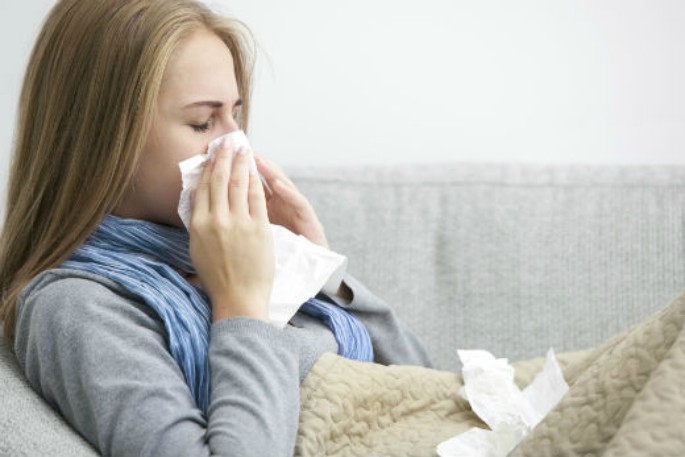Flu season is back, so here are some tips to help avoid getting sick.
“Winter is always a time when there are lots of bugs and illnesses around, from runny noses to coughs and colds, and we often feel mauiui, sick,” says, National Public Health Service, Health New Zealand, Te Whatu Ora, national clinical director for protection Dr Susan Jack.
“This impacts whānau, friends and work colleagues. It can be challenging physically and mentally before it gets warmer and brighter in spring.
“We know that during winter there is an increase in hospital admissions for respiratory infections and other illnesses associated with the season, and they spread easily as we spend more time indoors.
“There are some things you can do to keep you and your whānau well over the winter,” says Susan.
Vaccination and immunisation
Susan says that vaccination against flu is our first line of defence against illness this winter.
“The flu vaccine is free now for those most likely to get very sick.
“You can book for yourself, a family member, or a group on bookmyvaccine.health.nz.”
Susan asks for everyone to make sure their tamariki, whānau and household are up to date with immunisations against other infectious diseases, such as measles, mumps and rubella, chickenpox, whooping cough, pneumococcal diseases, and COVID-19, to protect themselves and others.
Susan says that as temperatures drop people are more susceptible to bugs.
“Free vaccinations are available for these illnesses.
“It’s not too late to get your immunisations up to date.”
“If you haven’t had all these immunisations, it’s easy to catch up, so speak to your healthcare provider or check to immunise.health.nz for help and advice.
“Get your COVID-19 booster if you are 30 years of age and over, regardless of the number of vaccines you have already had and if it’s at least six months since you had COVID-19 since you had your last COVID-19 vaccine or booster.”
Plan ahead
“Be prepared if you or one of your whānau have an ongoing or underlying chronic health condition:
Susan advises that everyone checks their supply of regular medications and arrange their next prescription before it runs out.
“Before winter, contact your doctor nurse or pharmacy for any health needs and make sure you have enough prescription medicine in case you need to stay home for a while.
“Discuss with your whānau and nurse what your action plan is if you become unwell.
If you live in a remote or rural area where there are not many health services, be sure that you have everything you need to stay well, says Susan.
“Your local doctor may be able to register you with their patient portal so you can book online appointments, order repeat prescriptions, and see your health records – all from a computer, tablet, or your phone.”
Protect yourself and others
“There are many things we can do to keep ourselves and others well,” she says.
Susan’s top tip is to stay home if you’re sick.
“Wear a mask when you are outside your home such as on public transport or in taxis, in indoor settings like stores and supermarkets, in poorly ventilated spaces, or when it’s crowded.
“Test if you have COVID-19 symptoms.
“These simple steps will help protect those around you; your grandparents, kaumātua, tamariki, and those who are at a higher risk of becoming seriously unwell - but they only work if we do them.”
It is important to regularly wash your hands with soap or use an alcohol-based hand sanitiser, says Susan.
If you sneeze or cough be sure to do so into your elbow or a tissue then throw away tissues in a bin and then wash and dry or sanitise your hands, she says.
“Please don’t visit young babies or older people if you are sick this winter. Many illnesses are very infectious, and babies can get very sick, very quickly.”
Susan says all of these actions can help reduce the spread of winter illness.
Where to get help
If you do get sick this winter, you can access care and advice in several ways.
If it’s an emergency or you are severely unwell, call 111 for urgent medical attention, she says.
Healthline
“If you become unwell or are concerned about your health, you can get free health advice and information from Healthline nurses, paramedics, advisors, and doctors (who can help with prescriptions).”
Susan says you can call 0800 611 116 anytime, day or night. You can choose to speak with a Māori clinician (if you’re calling 8 am-8 pm). Interpreters are available.
“Callers to Healthline can choose to speak with a Māori clinician (if they call between 8 am and 8 pm).
“The Healthline team can arrange for someone to talk to you in your language. When your call is answered, say you’d like an interpreter and the language you’d like to speak in.”
Community pharmacy
Susan says to get advice from your local pharmacist during these times for extra tips and information on how to avoid getting sick this winter.
“Some pharmacies also offer immunisation for influenza, pertussis, MMR, and COVID, blood pressure measurement and monitoring, blood glucose and blood cholesterol tests.”
General Practice
If you require an in-person appointment with your GP, follow their processes which may include wearing a mask, says Susan.
“Before you visit, if you have cold, flu or COVID-19 symptoms, please take a RAT test and let your healthcare provider know the result.
“If you have a sick child with breathing difficulties, seek medical care from your doctor immediately.”



1 comment
This just in from Labour
Posted on 29-03-2024 13:39 | By an_alias
Stay home and don't leave your house.....mask up while on your own as you can't be safe enough.....maybe 2 masks would be better aye Mr Baker
Leave a Comment
You must be logged in to make a comment.